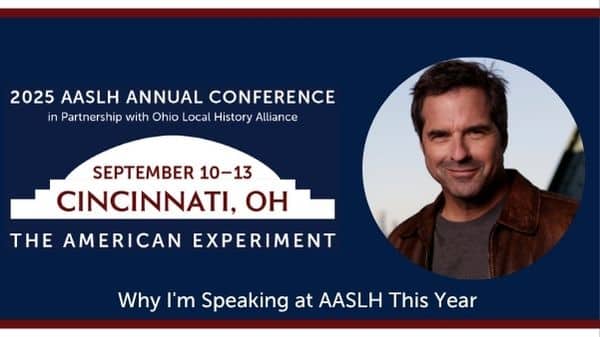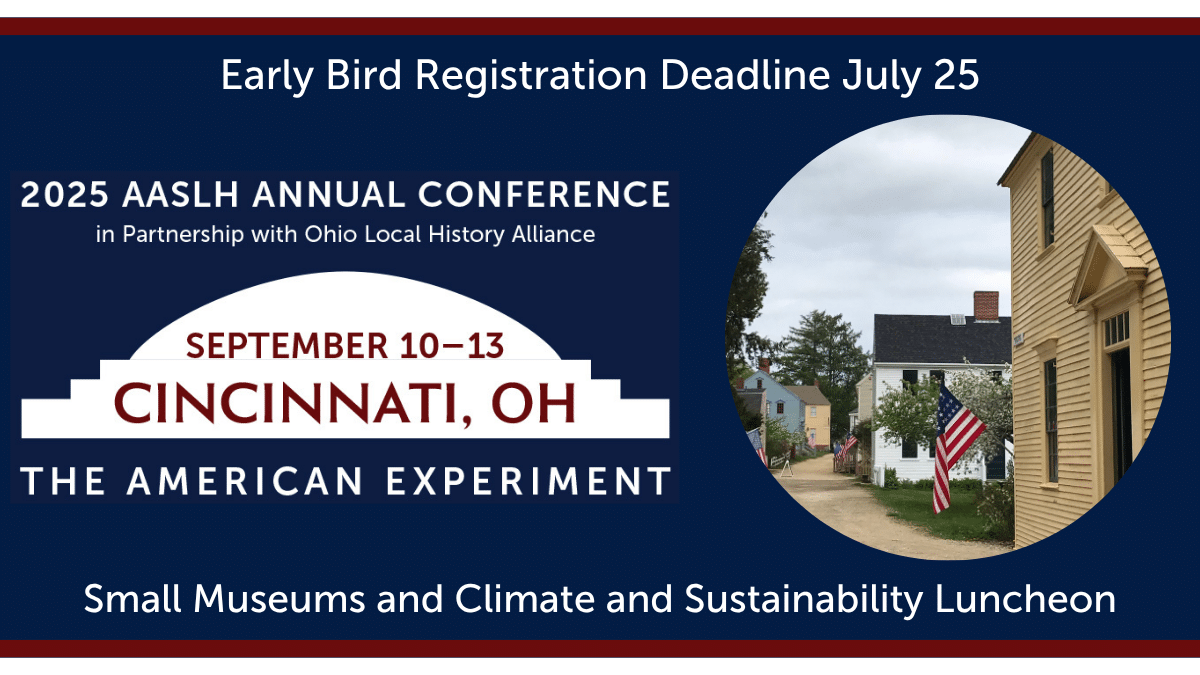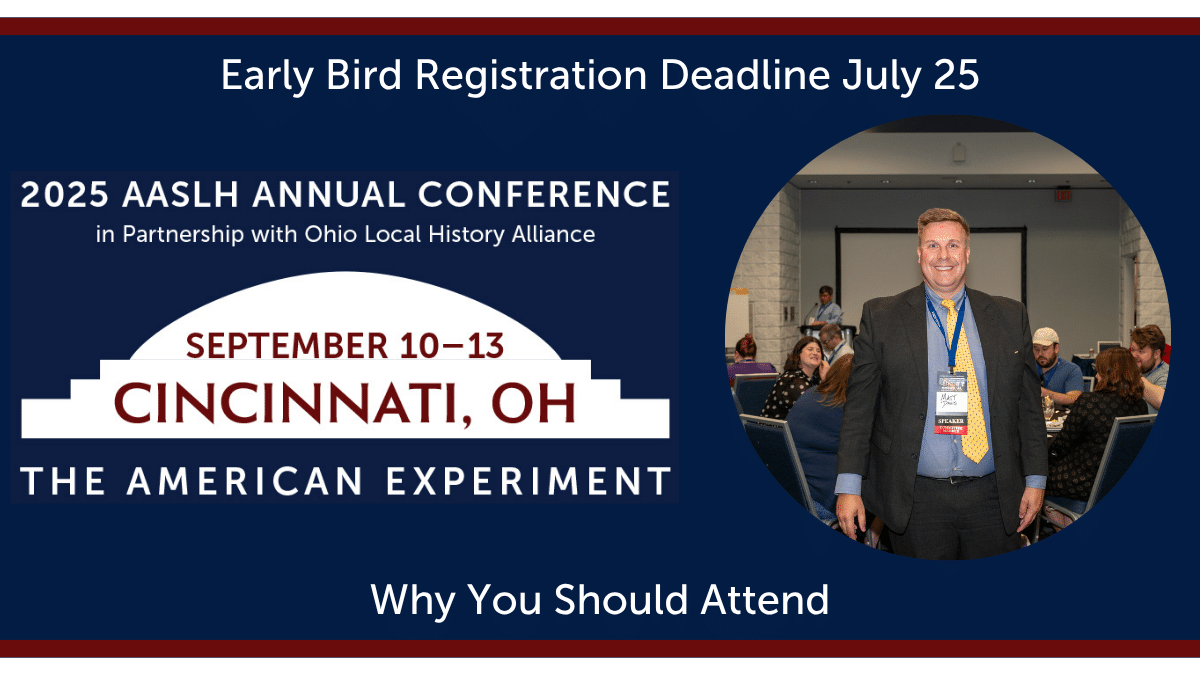There’s a strong connection between history and civics. The state of New York, home to this year’s AASLH Annual Conference, has many historic organizations and places connected to civics, from the Susan B. Anthony Museum & House in Rochester to the Harriet Tubman National Historic Park in Auburn.
Explore the connection between history, civics, and place with these conference learning sessions:
Thursday, September 15
Power, Perspectives, and Place: Deliberating Difficult Historic Decisions
8:30 a.m.
Join us to experience a deliberative forum on a difficult historic decision. Session leaders will share insights on how historic deliberations can enrich understandings of power, perspective, and place in classrooms, communities, and museums. Participants will receive tools and resources to utilize these transferable practices in their contexts.
Friday, September 16
Two-For-One! Civic Programming Working Group: Made By Us and Educating for American Democracy
8:30 a.m.
Bring one program idea and get help adapting it for two audiences. Made By Us (focusing on young adults) and Educating for American Democracy (K-12 audiences) both help historic sites and museums become civic engagement hubs. In this session, learn from both initiatives’ work and expertise and leave with easy to implement engagement strategies.
Healing the Open Wound: Collaborations Across Mexican and Canadian Borders
11 a.m.
This session will explore doing history in borderlands, where stories and experiences cross both real and imagined borders. The panel will focus on how museums can tell more relevant and inclusive stories, encouraging empathy and understanding by transcending the “borders” of their interpretation, and infusing decolonizing pedagogical sensibilities into our work.
Saturday, September 17
General Session: Voices Shared, A Dialogue with The Honorable Crosby Kemper
9 a.m.
The Institute of Museum and Library Services (IMLS) will present a special dialogue led by IMLS Director Crosby Kemper III, drawing from dedicated study of American history, civics, and a commitment to civil discourse. With participation by noted scholars, this dialogue will explore the impact of social media, polling, and other technological and political forces that have shaped our knowledge of America’s history to address the fundamental question of how we move forward together as a nation in the face of these challenging dynamics. This presentation is an official activity of the IMLS America250: All People, All Places, All Stories initiative.
Promoting Civic Behavior in Your Community
10:45 a.m.
Most history institutions exist to highlight past civic actions in their communities. How can you encourage your visitors to become active citizens? Learn how a volunteer at a county historical society and a classroom teacher helped to develop civic awareness and action. Attendees will participate in a sample activity from the brand new free interactive Action Citizen.
Other Civics Resources
In addition to these sessions, these resources will help you advance civics in our field:
A blog post by AASLH President and CEO John Dichtl highlights what can be done to promote civics in the lead-up to the nation’s 250th anniversary in 2026.
Our new Civic Education and Engagement Resource Kit is a collection of past conference sessions, History News articles, Technical Leaflets, Leadership in History Award winners, Inclusive Historian’s Handbook entries, and outside resources about civics.
Finally, contact your Congressional delegation and ask them to support the Civics Secures Democracy Act, which would provide $200 million annually in competitive grants to history organizations that promote civics education.
***
***




